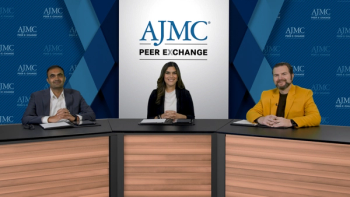
Experts discuss how payer and reimbursement considerations affect access to bispecific therapies in different practice settings.

Experts discuss how payer and reimbursement considerations affect access to bispecific therapies in different practice settings.

Experts discuss how institutions can address the resource and bandwidth challenges that come with administering complex therapies like bispecifics.
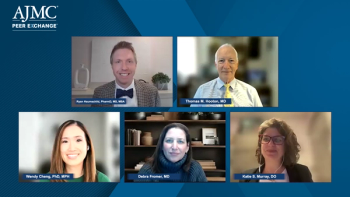
Panelists discuss how standard-of-care antibiotics for uncomplicated urinary tract infections (UTIs) show varying efficacy, with nitrofurantoin and fosfomycin demonstrating superior response rates (85%-95%) compared with trimethoprim/sulfamethoxazole (70%-80% due to increasing resistance) and first-generation cephalosporins (80%-90%), and how cost-effectiveness depends on local resistance patterns, patient adherence to dosing schedules, medication costs and insurance coverage, treatment duration, recurrence rates, comorbidities, and potential adverse effects requiring additional interventions.
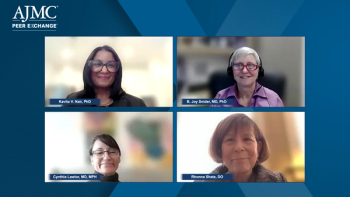
Panelists discuss how clinicians should interpret Clinical Dementia Rating-Sum of Boxes (CDR-SB) score changes by correlating numerical shifts with meaningful real-world outcomes, considering both the statistical significance and clinical meaningfulness of changes, recognizing that even modest improvements may represent significant functional preservation for patients, and contextualizing these changes within individual patient circumstances, disease trajectory, and impact on quality of life.

Experts discuss the role of technology, such as electronic health record (EHR) integration, in improving the operationalization of bispecific antibodies.
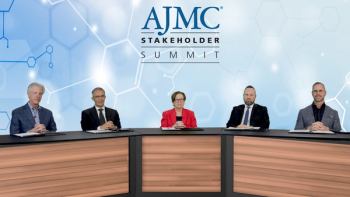
Experts discuss how current coverage policies and prior authorization requirements affect continuous glucose monitoring (CGM) access and adoption rates, and how coverage barriers impact the ability to provide timely CGM access, particularly for patients who could benefit most.

Panelists discuss how amyloid-targeting therapies for Alzheimer disease represent a breakthrough drug class that works by binding to and removing beta-amyloid plaques through various mechanisms, demonstrating modest cognitive decline reduction in clinical trials while presenting safety considerations including amyloid-related imaging abnormalities (ARIA), infusion reactions, and the need for careful patient selection and monitoring protocols.

Experts discuss why it is critical to have standardized protocols in place for managing cytokine release syndrome (CRS) in patients receiving bispecific antibodies, outlining the key components of an effective CRS management protocol as well as best practices for transitions of care between settings when administering and managing bispecifics.

Panelists discuss how uncomplicated urinary tract infections (UTIs) are typically managed with empiric short-course antibiotics based on local resistance patterns while identifying significant gaps in the outdated 2010 Infectious Diseases Society of America (IDSA) guidelines, including insufficient guidance on emerging resistance trends, limited recommendations for alternative therapies, inadequate consideration of patient-specific factors, absence of antimicrobial stewardship protocols, and minimal direction on prevention strategies for recurrent infections.

Experts discuss the most significant barriers to continuous glucose monitoring (CGM) implementation encountered in their respective roles and how these barriers vary across different patient populations and care settings.
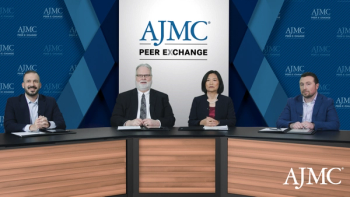
Experts discuss proactive steps health care teams, including pharmacists, can take to minimize delays and overcome payer-related barriers when prescribing third-line therapies for metastatic colorectal cancer (mCRC) and how collaboration between health care teams, payers, and manufacturers can be improved to reduce care delays.

Experts discuss effective strategies for navigating the prior authorization process to ensure timely access to third-line therapies for metastatic colorectal cancer (mCRC) and share any success stories.
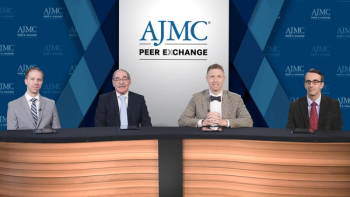
Panelists discuss how immunoglobulin A (IgA) nephropathy represents a complex glomerular disease characterized by IgA deposition in the mesangium, with a wide spectrum of clinical presentations ranging from benign hematuria to progressive kidney failure requiring comprehensive management strategies.

A panelist discusses how new data from the 2025 American Academy of Dermatology Annual Meeting (AAD 2025) demonstrates tildrakizumab’s efficacy in treating nail psoriasis, with the 100-mg dose showing significant improvements in mNAPSI 75 and ViSENPsO responses at week 28 compared with placebo, potentially addressing a critical unmet need in psoriasis treatment.
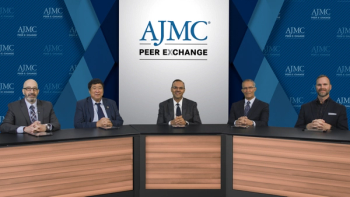
Experts discuss the evidence supporting the continuous relationship between lipoprotein(a) (Lp[a]) levels and atherosclerotic cardiovascular disease (ASCVD), as recognized by the National Lipid Association, and explore how Lp(a) levels may change throughout a person’s lifetime or in response to lifestyle factors.

Experts discuss the relationship between lipoprotein(a) (Lp[a]) levels and atherosclerotic cardiovascular disease (ASCVD) risk, with findings from a large US population study, and explore how these findings could impact clinical practice and the management of patients at risk for ASCVD.

Experts discuss how institutions can develop standardized operational workflows that accommodate multiple bispecific products with different administration requirements, particularly as more products become available.

Experts discuss how the integration of continuous glucose monitoring (CGM) data into electronic health record (EHR) systems enhances clinical decision-making and care coordination, how primary care providers (PCPs) can leverage CGM data integration to provide more comprehensive diabetes care in the context of a shortage of endocrinologists, and the impact of varying coverage policies for CGM across different payers on patient access and outcomes, particularly for patients on basal insulin.

Panelists discuss how clinicians are addressing antimicrobial stewardship in urinary tract infection (UTI) management through implementation of evidence-based guidelines, delayed prescribing strategies, shorter treatment durations, targeted narrow-spectrum antibiotics based on local resistance patterns, increased use of culture-guided therapy, nonantibiotic preventive approaches, and enhanced patient education about appropriate antibiotic use.

Panelists discuss how health care institutions are leveraging strategic referral networks and telemedicine technologies to bridge geographical barriers, connect rural patients with specialized dementia care, establish hub-and-spoke models with community partners, and implement virtual cognitive assessments to dramatically improve both access and quality of care for patients with Alzheimer disease in underserved areas.

Panelists discuss how overcoming barriers to effective Alzheimer disease cognitive screening requires addressing multiple challenges including time constraints in clinical settings, inadequate reimbursement models, limited provider training, integration of screening tools into existing workflows, and patient concerns about diagnosis implications.

Panelists discuss how patients with recurrent urinary tract infections (UTIs) describe significant burdens including constant anxiety about symptom onset, disruption to work and social life, financial strain from frequent office visits and medications, frustration with treatment-resistant infections, embarrassment discussing symptoms, sexual dysfunction, relationship difficulties, and substantial mental health impacts such as depression and diminished quality of life.

Experts discuss the role of continuous glucose monitoring (CGM)-derived metrics, particularly glucose management indicator (GMI), in the new Healthcare Effectiveness Data and Information Set (HEDIS) diabetes care measures and ACO quality targets, and how CGM-specific metrics are being incorporated into the National Committee for Quality Assurance (NCQA)’s quality measures and the implications for health plans.
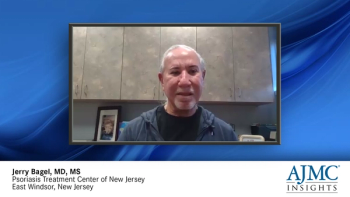
A panelist discusses how clinicians should systematically adopt evidence-based hidradenitis suppurativa (HS) guidelines while maintaining flexibility to tailor treatments to individual patient needs, severity levels, and comorbidities. This involves regular monitoring of updated recommendations, implementing standardized assessment tools, and considering patient-specific factors such as lifestyle, preferences, and treatment response history to optimize therapeutic outcomes through a personalized medicine approach.

Experts discuss what partnerships between academic and community settings look like with regard to bispecifics, highlighting the role academic centers play in supporting community practices with bispecific therapy protocols.

Experts discuss key payer-related challenges, such as step edits and prior authorizations, that impact access to third-line therapies for patients with metastatic colorectal cancer (mCRC). They also discuss how payer requirements influence treatment sequencing and decision-making in the third-line setting and how the costs associated with adverse events across different third-line treatments affect treatment selection.

Experts discuss how pharmacists contribute to managing adverse events and toxicity for patients undergoing metastatic colorectal cancer (mCRC) treatment. They explore the factors influencing patient adherence to third-line therapies and ways pharmacists can improve patient education to enhance adherence to treatment regimens.

Experts discuss the clinical and economic burden of atherosclerotic cardiovascular disease (ASCVD) and aortic stenosis in the US, exploring their impact on health care systems, the importance of prevention in reducing this burden, and the challenges of implementing preventive strategies, while considering the potential benefits of improved risk assessment and prevention in the ASCVD space.

Experts discuss atherosclerotic cardiovascular disease and aortic stenosis, as well as their burden, highlighting their prevalence, impact on patient health, and the growing need for effective management strategies.

Panelists discuss how selecting an optimal combination of screening assessments for Alzheimer disease requires careful consideration of test sensitivity, specificity, accessibility, cost-effectiveness, implementation feasibility, and alignment with patient populations and health care resource constraints.

259 Prospect Plains Rd, Bldg H
Cranbury, NJ 08512
© 2025 MJH Life Sciences®
All rights reserved.
